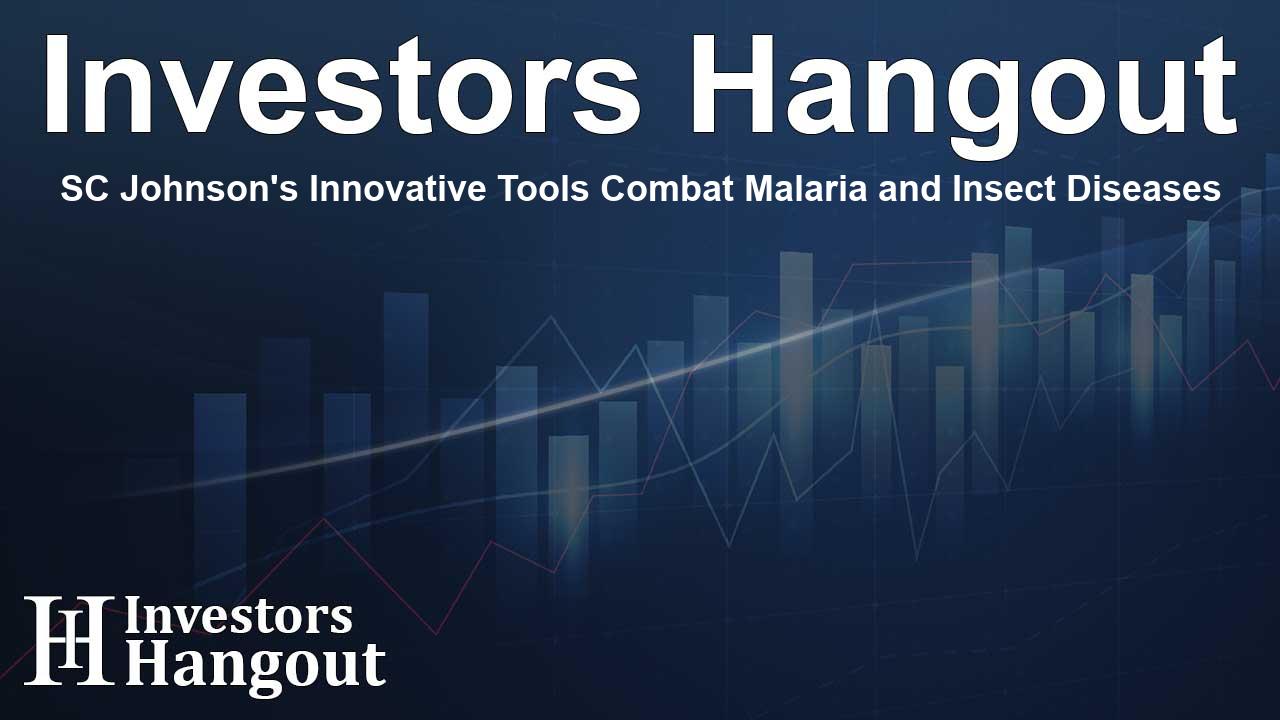SC Johnson's Innovative Tools Combat Malaria and Insect Diseases

SC Johnson Advances Malaria Prevention with WHO Support
Each year, malaria tragically claims the lives of over 600,000 individuals globally. In a transformative step in the fight against this deadly disease, SC Johnson has successfully secured a policy recommendation from the World Health Organization (WHO) for its innovative spatial repellent products. This marks a major milestone in vector control, as it is one of the first new categories of tools approved by WHO in 25 years.
The Importance of Spatial Repellents
Spatial repellents provide a viable solution to repel mosquitoes, reducing the risk of disease transmission. These low-cost and long-lasting devices release active ingredients that deter mosquitoes from entering treated spaces, thus minimizing human-biting incidents. With the ability to be placed in homes and schools, they represent an accessible line of defense against diseases like malaria.
SC Johnson's Commitment to Public Health
SC Johnson has proactively distributed millions of its spatial repellents, including the SC Johnson Guardian™ and SC Johnson Mosquito Shield™, to vulnerable communities worldwide. By collaborating with various public health partners, the company has made a significant impact, ensuring that these protective tools reach those most in need.
Fisk Johnson's Vision
Fisk Johnson, the Chairman and CEO of SC Johnson, expressed his enthusiasm about the WHO's endorsement. He stated, "This important milestone comes after more than a decade of SC Johnson efforts and over $100 million invested in our spatial repellent products. Our initiative is driven by a commitment to combat diseases that threaten millions. Our people’s passion and dedication have made this possible, and we are just getting started."
Effectiveness and Efficacy of Spatial Repellents
Clinical trials have demonstrated the effectiveness of SC Johnson's spatial repellents in reducing the risk of malaria-related disease by up to 33 percent. Specifically, the Guardian product has shown remarkable durability, offering protection for up to one year when utilized correctly. Extensive trials conducted in various locations, including Indonesia and Kenya, provided compelling evidence to support the WHO's recommendation.
Innovative Manufacturing Initiatives
Recently, SC Johnson established two high-speed manufacturing lines for its Guardian spatial repellent in its facility. When fully operational, these lines are projected to produce 20 million units annually. Furthermore, a new manufacturing line in Argentina is scheduled to open soon, aimed at boosting production capacity even further.
Global Health Partnerships
SC Johnson collaborates closely with organizations such as The MENTOR Initiative and Society for Family Health Rwanda to enhance public health education and distribution of these critical tools. The company’s commitment to humanitarian support reinforces its goal of saving and improving lives through effective disease prevention strategies.
Continued Efforts in the Fight Against Malaria
The WHO's endorsement of SC Johnson's spatial repellents will not only strengthen public confidence in these products but also facilitate broader collaboration with governments and health organizations globally. SC Johnson aims to expand access to spatial repellents for communities at risk, thereby safeguarding more families from insect-borne diseases.
SC Johnson's Vision for the Future
As a purpose-driven company, SC Johnson has reached over 110 million individuals through its public health initiatives since 2013. The organization remains dedicated to using its resources and expertise to combat pressing health challenges worldwide, particularly those related to malaria and other vector-borne diseases. The impact is expected to grow as the company continues to innovate and collaborate with health leaders.
Frequently Asked Questions
What are spatial repellents?
Spatial repellents are tools designed to release active ingredients that repel mosquitoes, helping to decrease the transmission of diseases like malaria.
How effective are SC Johnson's repellents?
Clinical trials indicate that these repellents can reduce disease risk by up to 33 percent and provide protective effects for up to one year.
How does SC Johnson contribute to public health?
SC Johnson actively collaborates with global public health partners to distribute its repellents to vulnerable communities and educate them about disease prevention.
Why is WHO's recommendation important?
The WHO's endorsement boosts confidence in the efficacy of SC Johnson's products and broadens opportunities for distribution and funding.
What is SC Johnson's long-term vision?
SC Johnson aims to enhance the global response to insect-borne diseases while promoting sustainable practices and public health initiatives.
About The Author
Contact Hannah Lewis privately here. Or send an email with ATTN: Hannah Lewis as the subject to contact@investorshangout.com.
About Investors Hangout
Investors Hangout is a leading online stock forum for financial discussion and learning, offering a wide range of free tools and resources. It draws in traders of all levels, who exchange market knowledge, investigate trading tactics, and keep an eye on industry developments in real time. Featuring financial articles, stock message boards, quotes, charts, company profiles, and live news updates. Through cooperative learning and a wealth of informational resources, it helps users from novices creating their first portfolios to experts honing their techniques. Join Investors Hangout today: https://investorshangout.com/
The content of this article is based on factual, publicly available information and does not represent legal, financial, or investment advice. Investors Hangout does not offer financial advice, and the author is not a licensed financial advisor. Consult a qualified advisor before making any financial or investment decisions based on this article. This article should not be considered advice to purchase, sell, or hold any securities or other investments. If any of the material provided here is inaccurate, please contact us for corrections.
